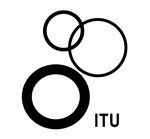Budapest hosts the first ITU Event Organisers Conference
By Olalla Cernuda on 24/02/17 at 3:06 pm
More than 110 representants from 32 countries of the endurance, triathlon and multisport organizing committees gathered this weekend in Budapest, Hungary, for the first ITU Event Organisers Conference, a three-days long event themed “Triathlon events for the next generation of athletes”.
Dr Béla Bátorfi, Preisdent of the Hungarian Triathlon Union, opened the Conference thanking everyone for their presence, and remarking that triathlon is “a team sport” and nothing could ever be done, from racing to organising events, without the help and support of the whole triathlon family. Dr. Tunde Szabo, Minister of State for Sport and Minister of Human Resources, said that only by investing in young people and in events “will our sporting community improve” as, she said, the Hungarian Triathlon Union has done in the last years.
Antonio Fernández Arimany, Secretary General of ITU, stated that “in triathlon, you only become a triathlete when you do a competition, so in our sport, competitions are the most important thing for our Federation. That’s why this conference has been one of our main targets for many years. I’m extremely proud that this is finally taking place”.
Yann Le Moenner, Managing Director of A.S.O. (Amaury Sport Organisation), and organisers of races as The Tour of France, explained that cyclism and triathlon have something in common: “We all have out of stadium events. We have no limits, sky is the only limit. But we can showcase the beauty of landscapes or cities”. “Key factors when organising an event is having unique places, which make the best races, offering a unique experience for spectators and athletes, and delivering a unique format”, he said.
Le Moenner, Attila Mizser -Sports Director of the Budapest 2024 Bid Committee- and Eva Szanto -Executive Director of Budapest 2017 FINA WC, shared their thoughts about how to engage cities with events during a panel discussion which stated organisers need to that make sure that they really understand why the city wants an event. “For some cities, hosting an event can cost a lot of money, so you have to help them to have a successful event that all can benefit from”, explained Le Moenner.
Saturday morning was the perfect time to learn what it takes to organise one of the most extreme triathlons of the planet, Norseman, while being sustainable and responsible. “We organise a race in a privileged nature environment. We have no prize money, the journey we offer to our athletes os our price. And we try to limit carbon emissions by streaming live the whole event, so we have less impact”, explained Dag Oliver, General Manager of the event, which gathers every year 250 triathletes from around the world to experience first hand what it is to race and to deal with “five different climate zones”.
In different working groups, Glyn Onione, from Aquatic Engineering, talked about how to get water reservoirs to easily comply with ITU environment and safety requirements, and how to help reducing the cost of the implementation of water courses during races. Sergio Migliorini, ITU’s Chair of the Medical and Anti Doping Committee, explained how to deal with weather-related health issues during races, as hypothermia, heat waves, thunder strikes… and how to minimize the possible consequences.
One of the musts for all the organisers is have a consistent and reliable contingency plan. “Everything can happen, and it’s impossible to have everything planned. But it helps, a lot, to plan in advance, study everything option, rely and teach your team and be ready to take actions and accept the consequences”, explained Andrew Taylor, managing director of Taylor Made Event Management.
How to prepare the best possible athletes’ experience is the goal of all events, and as explained by Sheila Findlay, Competition Manager of the ITU World Triathlon Edmonton, is easy if you always have the different athletes and client groups on your mind when planning everything. A perception that is also shared by Michel Schrama, director of MyLaps Experience, who offered some tips to get technology, data and apps to enhance the athletes’ journey during the events.
Oliver Schiek, Head of Operations of IRONMAN, explained that a key element to have a wonderful event is to have a “perfect venue”, able to host athletes, spectators, to showcase the beauty of the city… and for that is really important to work together with all the stakeholders. “Is a team effort”.
Gergeley Márkus, ITU’s Sport Director, remarked how important athletes are for the events. “They are our most important partners, and we focus on their needs always”, explained, while explaining the latest trends and tendencies of triathlon competition formats.
Indeed, the conference couldn’t forget that athletes are the main client group of the races, and it was really helpful to understand the needs, likes and dislikes of the elite athletes trough Richard Downey, from Bluecarpet, manager of Alistair and Jonny Brownlee. “Athletes want a thrilling scenario, with crowds on the streets. They love to feel welcome to cities, and really willing to have a full experience. Is not all about price money, there are some other ways of them getting revenues and maximising their commercial possibilities, so those are also factors to be taking into account when planing racing. Because - he reminded- athletes love to compete, and they are willing to do so and to showcase great performances, which is great for all”.
A willingness to perform and to enjoy the races that is also shared by Nicky Dick, BTF Age Group Teams director and an age group triathlete herself. “They travel, sometimes with their families, so think about their needs, try to plan services for “family vacation” and think that age groupers are thousands and athletes which have to be always in all organiser thoughts”.


